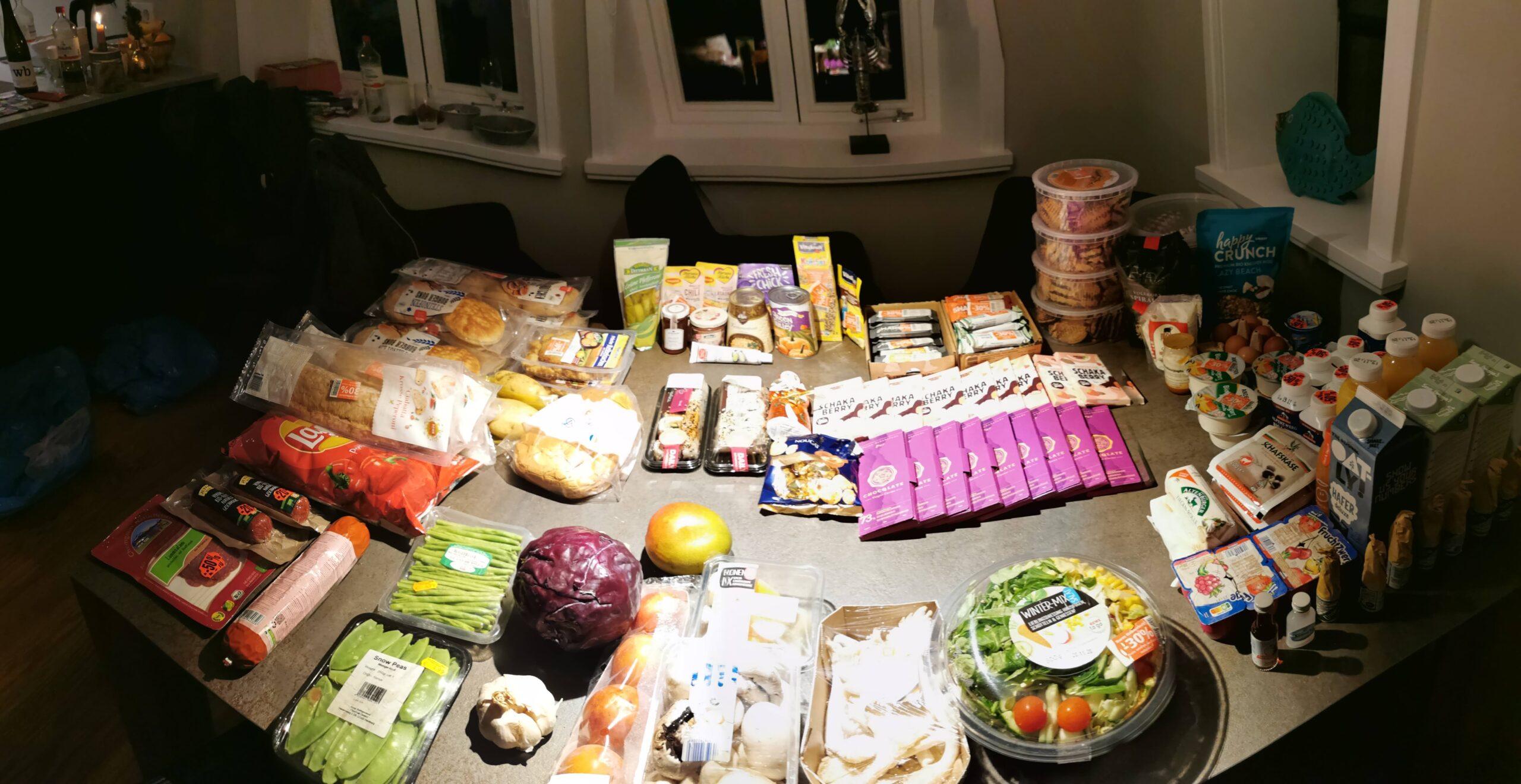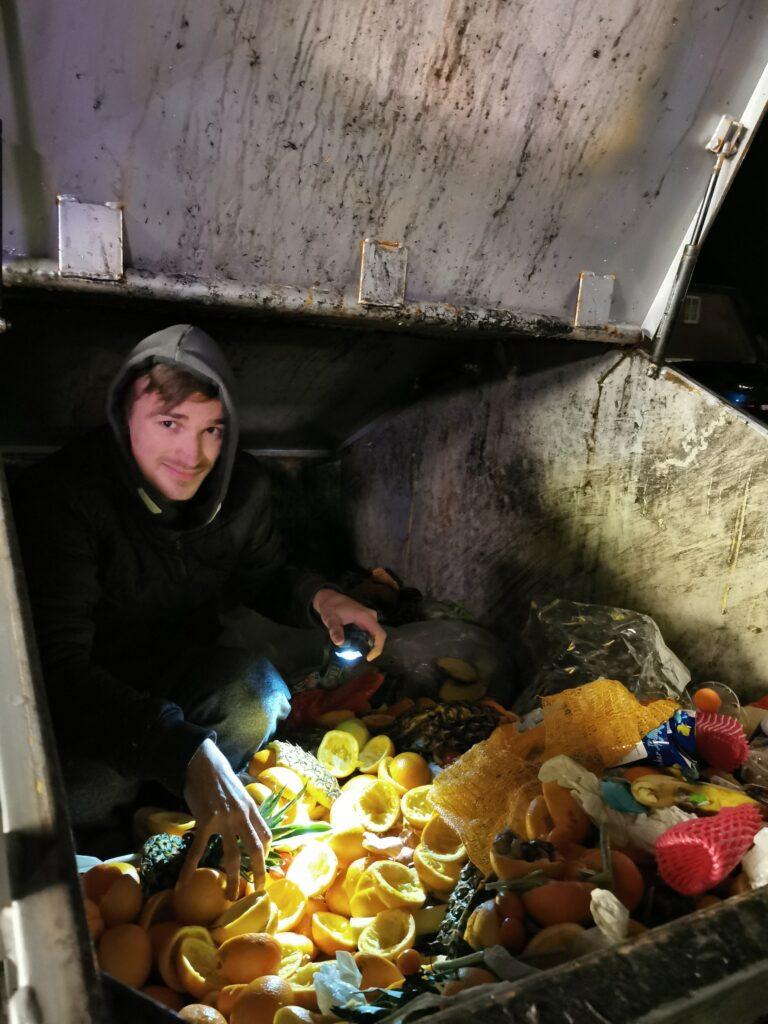
Caution: What’s Ahead Might Spark an Addiction
What Exactly is Dumpster Diving?
Dumpster diving, or as I might call it where I am, goes by names like containering, dumpstering, skipping, or my version, “recycling.” These terms all refer to the act of searching for things that are still good to use or eat, but have been thrown away. Dumpster diving covers a wide range – from private bins to commercial and industrial ones, even piles of discarded stuff on the curb. The possibilities of hidden treasures are endless. People hunt for electronics, textiles, furniture, metals, and more. You can even make some money from dumpster diving, as the saying goes: one person’s trash is another person’s treasure. In my case, I mainly focus on supermarkets to find food.
Now I understand what dumpster diving is. I might be thinking, “Is it okay? Can I do it?” Well, the answer isn’t a simple yes or no. It’s kind of in a gray area in some places and actually illegal in others. This is something I should look into based on where I am.
The Problem of Food Waste
Every year, around 1.3 billion tons of food go to waste worldwide. That’s one-third of all the food made for people to eat. This number is shocking, but when I’ve seen it with my own eyes, it’s just sad. It leaves me feeling frustrated and upset. I’m always wondering “why” as I turn a perfectly good item around, looking for the reason it ended up in the trash.
Supermarkets have rules to follow. They can’t sell products past their use-by date, even if the packaging is just a little damaged. Sometimes it’s because of mistakes on labels or they ordered too much.
Food waste is a big problem that needs to change quickly. What I’m doing might seem small compared to such a big issue, but it’s a start. I hope it makes people more aware and encourages them to talk about it, to open their eyes to what’s really happening.
Different When Traveling and at Home
Traveling
I can’t save everything! This is a bit sad, but I’ll realize that I have to leave a lot of good food behind. There’s only so much I can carry in my backpack along with everything else I need. I only take what I can use and carry. This is one of the biggest differences between dumpster diving at home and while traveling (the amount I can save). Sometimes I might give away the food I find to save a little more.
At My Local Place
I’ve experienced both situations. I’ve been living in Hamburg (Germany) all my life so I’ve gotten used to my surroundings. That really helps when it comes to dumpster diving. Sometimes bins are locked, too high to reach, or just empty. Knowing where to go makes a big difference. Figuring out when supermarkets throw stuff out, knowing the best times, increases my chances of finding good things. Having a fridge or freezer is important too. Most of what I find is because of expiration dates. Preserving it as soon as possible is key. Another good thing about being home or having a kitchen is that I can turn the food I find into tasty meals.

This on the picture is not what you usually do!
Hygiene
Trash means dirty, right? Many people think that way, that it’s dirty and not clean. At first, I worried about the same thing. Bins are made for throwing stuff away, so it’s not surprising to find things in bad condition mixed in with the good stuff. Things might spill and make a mess. So, what’s the reality?
I can only talk about what I’ve experienced in the European Union. Most bins are pretty clean on the outside, and even on the inside. But it depends on what’s been thrown away. Sometimes, it can be dirty and smelly. You just need to be ready to get your hands a bit dirty. It’s kind of like searching for gold – sometimes you find it, sometimes you don’t. Most of the time, I didn’t even need gloves, but it’s a good idea to have a pair just in case. Always wash whatever I find, whether it looks dirty or not, just to be safe. From what I’ve seen, I’ve never gotten sick from the food I’ve eaten, and the same goes for people who’ve eaten with me or taken food from me. I don’t know what it’s like outside of Europe, but I’ve been pleasantly surprised by how good the conditions of supermarket bins are here. Getting a little dirty is a small price to pay, and a good wash takes care of it. I can’t promise you’ll always find good stuff or have perfect conditions in the dumpsters, but most of the time, it’s worth it.
If I’ve got you curious to try, don’t worry – I’ll give you all the details on how to start, where to go, what to expect, and much more in my upcoming blogs on dumpster diving. Learn with me how to live this


